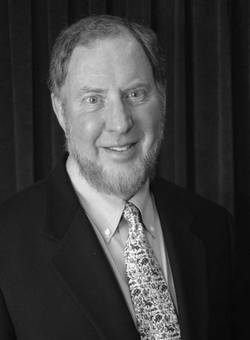Harvard Political Science professor and writer Robert Putnam spoke in Wilson Auditorium on Friday, January 27. It is hard to find a political science book in the world today which doesn’t mention Putnam. His book Bowling Alone: The Collapse and Revival of American Community, is a national bestseller, it is a critically acclaimed book about the decline of social capital in our society. He was the winner of the 2006 John Skytte award for the most valuable contribution to Political Science. He had been featured in numerous publications including the New York Times, Washington Post, Chicago Daily Herald and The Nation. The London Sunday Times has called him the “Most influential academic today” for his scholarly achievement in Political Science. He has worked with Presidents Bill Clinton, George W. Bush, and Barack Obama to push his ideas for civic renewal.
His work, however, exceeds the classroom. Putnam was the creator of the Saguaro Seminar. This seminar was an initiative by Putnam to increase social capital in America. Social Capital was a term coined by Putnam in his book Bowling Alone. Putnam was the first to make the country aware of the shrinking social gap in America and the consequences that can come with it. Unlike many people in political science who may talk about many problems but offer a few solutions, Putnam has decided to work on making this country a better place, which has gained him much national notoriety. Dean of the Honors School, Kevin Dooley commented on Putnam’s work by stating, “The talk which examined his new book American Grace, examined the nature of religious attitudes in the United States and how they have risen to prominence today.”
In his speech at the University, Putnam discussed his new book American Grace co-written with Notre Dame Professor David Campbell. American Grace has been touted as the most important religious book in decades. He talked about the role of religion in our society and how 50 percent of all social activities still involve religion. A major change has occurred in our country regarding peoples’ faith and how they practice and how they feel towards those of other religions. In the 1950’s, families were going to church every Sunday and were much more involved in religious society. Dooley commented saying, “His presentation was fascinating because it argued that Americans are actually quite tolerant toward people with different religious backgrounds and that most Americans today do not like it when politicians use religion when discussing politics.”
During the early 1960’s and the start of the counterculture revolution, people were beginning to question the existence of a higher power. This was a major shift from the 50’s. In the 70’s and 80s, a reaction to the counter culture saw a rise in evangelicalism and the religious right. Today, a shift back towards secularism in this country is occurring.
Young people are turned off by the linkage between faith and conservative politics have abandoned organized religion altogether according to Putnam. They still followed religion and identify with a religion but have become a “NONE.” According to Putnam, a NONE is a person who believes in God and religion but does not belong to a specific religious establishment. These types of people have also been seen to be much more tolerant of other religions.
For example, a majority of people who identify themselves as Christians now say that people from other religions can also go to heaven. Out of all the different religions, Jewish people have a favorability rating of 62 percent. Judaism is the most liked religion in the world, according to the study made by Putnam.
The speech by Putnam was another great presentation brought to the University through the Political Science Department, as well as the Honors School and Dean of the Honors School Kevin Dooley.
Recently the University has had former New Jersey Governor Brendan Byrne speak, and will have him return to the University in the spring, as he is the Public Servant in Residence. Dr. Joseph Patten, the Chair of the Political Science Department, was able to secure Byrne in this position.
The University has been able to garner interest around the country now by hosting famous speakers from around the globe.
PHOTO COURTESY of harvard.edu


